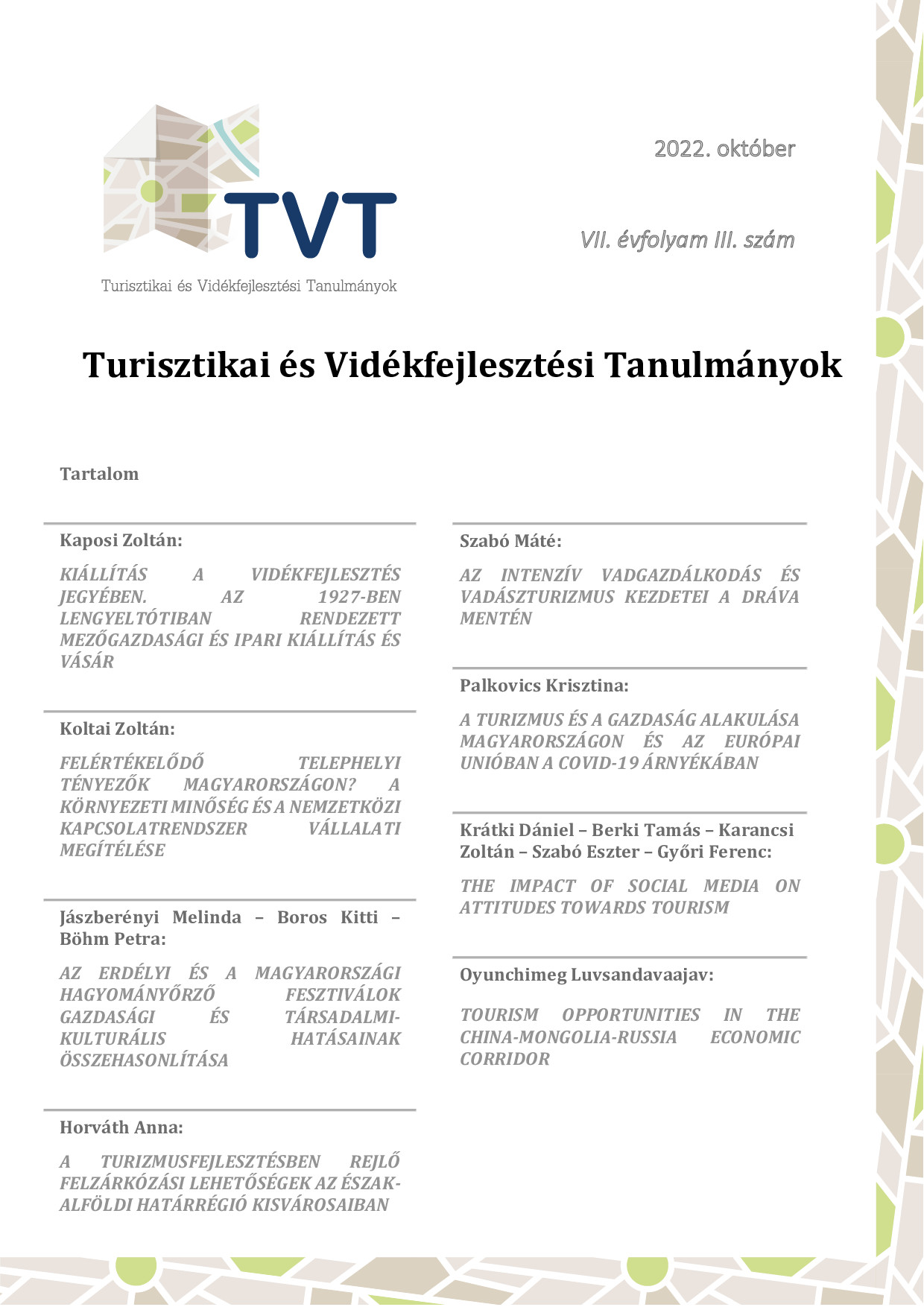Az intenzív vadgazdálkodás és vadászturizmus kezdetei a Dráva mentén
DOI:
https://doi.org/10.15170/TVT.2022.07.03.05Kulcsszavak:
vadgazdálkodás, vadászterület, vadászat,, erdő, uradalomAbsztrakt
A tanulmányomban azt vizsgálom, hogy a dualizmus időszakában a dél-dunántúli uradalmak erdőgazdálkodási rendszerébe illeszkedő vadászati tevékenység milyen sajátosságokat mutat. Bemutatom a térség uradalmainak erdészeti és vadászati sajátosságait. A dél-dunántúli vidék mindig is híres volt a kimagasló minőségű vadállományáról, amelynek máig tartó eredményei vannak. A vadászatok egyszerre voltak a magasabb rangú társadalmi rétegek számára úri szórakozások, a közösségi lét sajátos formái, társasági összejövetelek, amelyek ugyanakkor lehetőséget teremtettek a résztvevők kapcsolatainak építéseire is A vadászatok nem nélkülözhették a tudatos vadgazdálkodás kialakítását. A vizsgált korszakban több uradalomban is erőfeszítéseket tettek a vadgazdálkodás fejlesztésére. Az ebben érdekelt arisztokrata földbirtokosok újabb és újabb vadászható vadfajokat telepítettek földjeikre. Híres vadászterületeket, vadászkerteket alakítottak ki. Sok helyen jelentős tőkét fektettek be vadászházak és vadászkastélyok építésébe. Sok energiát fordítottak a vadászatot kiszolgáló infrastruktúra kialakítására is. A vadgazdálkodás kialakítása képzett és jól fizetett agrárszakembereket kívánt. Rávilágítok arra a tényre, hogy a mai kor legjelentősebb vadászati létesítményeinek és rendszereinek az alapjait az általam vizsgált korszak haladó és előre mutató szakmai munkát és fejlesztéseket felmutató uradalmaiban fektették le.


